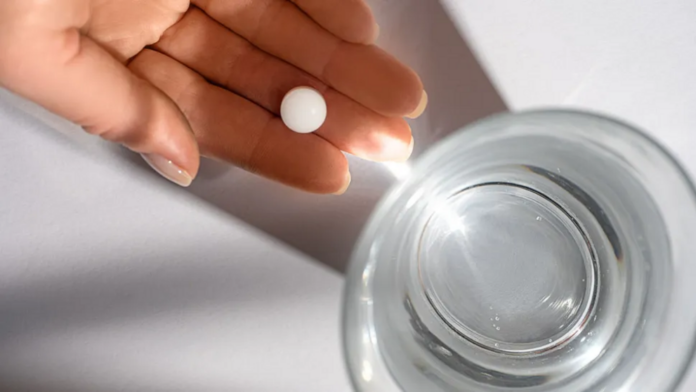What causes the placebo effect?
A “placebo” is used in a clincal trial as something to compare the real medicine to. But sometimes, people feel better after taking the faux treatment. Why?
Experts look to psychology and physiology to understand why people sometimes feel better after receiving a sham treatment.
Under the influence of the “placebo effect,” people mysteriously see their health improve after receiving a faux treatment with no active ingredient, such as a sugar pill. But what causes the placebo effect, exactly?
The phenomenon can be attributed to both psychological factors and physiological changes in the brain and nervous system that are triggered when a person takes a placebo. However, other factors beside the brain could be at play. In some cases, people’s symptoms might improve regardless of whether they get a true treatment or a placebo, and they simply attribute that change to the intervention.
To understand the placebo effect, first we must define it. Dr. Christopher Labos, a medical doctor at the McGill Office for Science and Society, told Live Science that people often misinterpret “placebo” to mean a fake medication given by a doctor to purposely deceive a patient into thinking their health is improving. “You cannot knowingly prescribe something that you know does not work,” he said.
When researchers refer to a placebo, they actually mean an inactive treatment that’s used as a point of comparison, or “control,” in a human trial.
“People [in the trial] know that there’s a 50:50 chance that they’re going to get a placebo,” so there’s no deception involved, Labos said. Placebos are important because, without them, scientists wouldn’t be able to differentiate between the benefits of the medicine being tested and natural fluctuations in the severity of a disease.
“The placebo effect is a term we use to encapsulate a number of different phenomena,” Labos noted. This includes a psychological phenomenon called the Hawthorne effect, in which people tend to feel better after seeking medical care or participating in a trial, regardless of the treatment they receive. Studies also show that the placebo effect depends on how competent and warm the doctors seem to the participants. People also may behave differently after getting a placebo if they expect symptom relief, Labos said.
Social cues and people’s past experiences also can affect their responses to placebos. If a trial participant knows they might receive a treatment rather than a faux drug, they may tolerate pain better, Labos said; their past experiences tell them that a treatment should make them feel better, and this biases their perceived experience.
Kathryn Hall, a placebo researcher at Harvard University, agrees that “the social cue can change your experience of the pain.” She also notes that there must be a physiological process underpinning this change. Taking a placebo must flip a switch in the nervous system, changing how nerve and brain cells then react to stimulus.
Hall highlighted evidence that the brain modifies people’s pain perception, making the same pain signals feel more or less intense depending on the context in which they’re triggered. A person may experience less-intense pain when given a cream that they think contains lidocaine, compared with when they know they’re just using petroleum jelly.
Researchers have found that the prefrontal cortex — the brain’s information processing center — can take a top-down approach to modulating pain when people are under a placebo’s influence. This brain region could raise the body’s pain threshold, thereby contributing to the pain relief participants expect to receive.
Hall has studied how genetics might shape people’s likelihood of experiencing the placebo effect. She’s focused on genes involved in controlling the activity of neurological pathways.
For example, her team pinpointed an enzyme that, when mutated, can enhance the placebo effect. Called catechol-O-methyltransferase (COMT), it helps to remove the chemical messenger dopamine from the gaps between neurons. Some people possess a form of COMT that doesn’t efficiently clear away dopamine, and they respond more to placebos than people with efficient COMT do. That suggests this dopamine signaling may boost the placebo effect.
Other factors can contribute to the placebo effect. Some iIllnesses can naturally wane over time, and it’s possible to misattribute this improvement to an effect the placebo or treatment has on the body, Labos said.
Social-desirability bias can also skew the results of a clinical trial. “When you give patients questionnaires, they tend to give you the answer they think you want to hear,” Labos said. Trial participants receiving a sugar pill may therefore downplay their symptoms without realizing it, in order to avoid disappointing the research team.
However, evidence that physiological changes in the body underlie the placebo effect continues to mount, and Hall plans to study additional genetic factors linked to the effect. Collectively dubbed the “placebome,” these genes could one day help scientists clarify the mechanism behind the mysterious effects a dummy pill can have on the body.
Editor’s note: This story was rewritten and republished on May 3, 2024. The previous version was published on Jan. 3, 2011.
This article is for informational purposes only and is not meant to offer medical advice.

